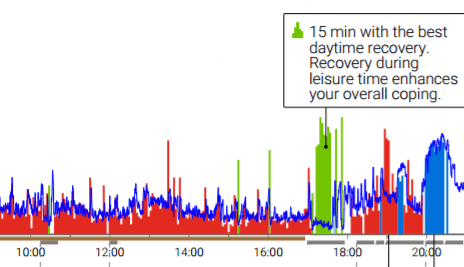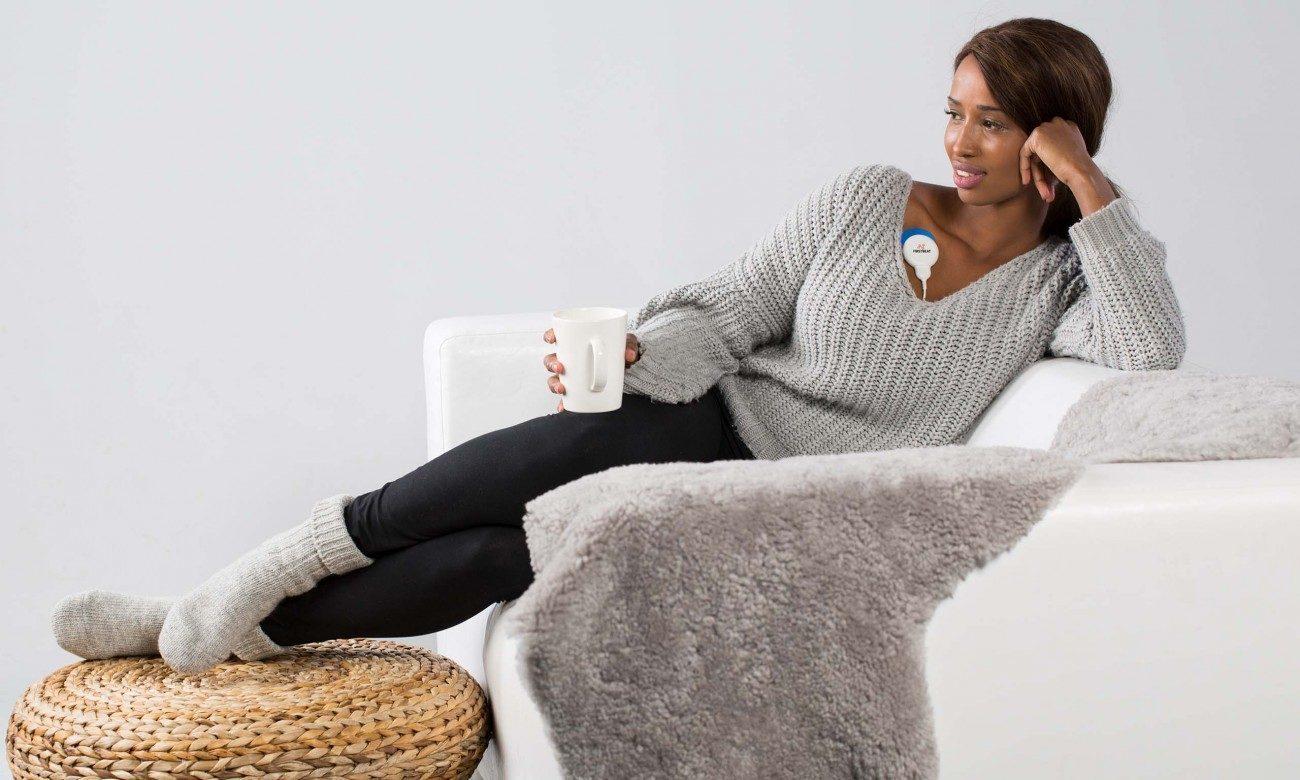
Several of our recent blogs have discussed different habits and realities of life that can compromise a healthy, well-balanced lifestyle. You might remember reading about the harsh effect that alcohol has on sleep, the importance of integrating some peaceful recovery moments into our busy days, how even positive stress can eventually wear us out, or how exercise can aggravate stress and disturb sleep, if done in excess or too late at night… These are of course important topics, and Firstbeat Lifestyle Assessment is a great tool for highlighting their role as part of a balanced lifestyle. This time, though, instead of focusing on problems, I want to take a look at a lighter side of Lifestyle Assessments and share a few interesting or funny discoveries that we have seen when conducting thousands of these assessments.
I’ll start with a discovery that a young colleague of mine recently had: he noticed that the most stressful 15-min period in his day was doing dishes – admittedly his least favorite household task that he puts off as long as possible. His first inclination was to conclude “no more dishes, in the name of stress management”, but as a caring colleague (or an evil mom-figure?), I gently raised the idea of doing them a bit more often, instead of when there are no more dishes left… 😉 Several clients over the years have also seen vacuum cleaning as the most stressful part of their day – and have even tried to get a “letter of recommendation” from me, as physiological proof to their spouse that vacuuming is bad for their stress levels. So far, I’ve not complied.
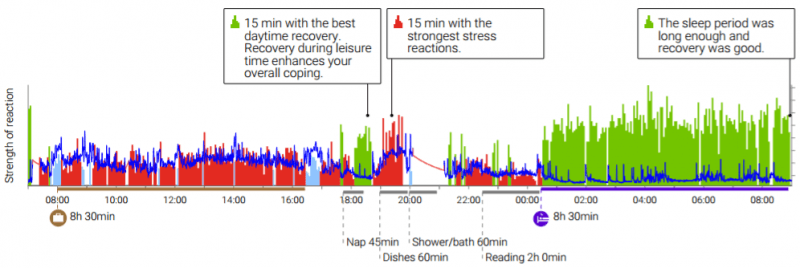
Colleague’s nap puts him in the green zone, whereas doing dishes causes an obvious peak in his stress level.
Other most stressful periods that we see in Firstbeat reports include, quite predictably, things like dentist visits, giving a speech, watching scary movies and rush hour traffic. For me, it seems to be shopping in a crowded supermarket with my husband (we have a very different way of going through the shop!), and I’ve concluded that letting him do most of the shopping is one of my stress / relationship management strategies. It’s also common for parents of small children to see sky-high stress levels in the morning when everyone is getting ready to go to daycare, school and work – and then significantly lower stress or even recovery when the parent gets to work. That’s when routine and professional skill kicks in – something that is often of little help when trying to get the rug rats out of bed, fed and out the door…
A different kind of stress caused people to have a tough day a few months back … Several clients in the US happened to be doing their measurement last November, on the day of the presidential election, and whether it was pure shock, raw fear or major surprise, their stress-recovery balance was way off, even if they were just sitting on the couch and watching TV late into the night. Here’s one guy’s result from the election day and night. As comparison, his previous day was well balanced, with a nice green recovery period during sleep…
Moving on from politics and stressful moments to recovery, the most relaxing 15 minutes of the day (excluding sleep) often occurs during pleasant activities, such as naps or meditation, putting a kid to sleep (the parent ends up falling asleep as well), snuggling and talking with a spouse, or getting a massage. A hair salon visit, however, seems to relax men more often than women; us women are probably busy worrying how it will come out. Recently, I have noticed nice recovery periods when women are getting their eyes or nails done, which seems to be a regular routine for many. I’m starting to wonder if I should consider that too – upgrade my beauty routine to a more professional level, in the name of recovery… The same activity can of course be relaxing for one person, but stressful for another, for example cooking or driving. It depends on the context and on how you perceive the activity and serves as a good reminder that everyone should find the things that help them relax, rather than follow generic guidelines. Recently a man had his most relaxing 15-min period during a dentist visit, and when asked to elaborate, he commented that he was undergoing plaque removal, but the dental hygienist was so beautiful and gentle that he forgot any possible discomfort.
Another man had his best recovery all day while driving his Harley motorcycle on country roads! I found that a bit astounding, but he said that he loves getting out on the bike, and finds that riding requires just enough concentration that he cannot think about anything else, such as work stress, but not too much that he couldn’t comfortably sit back and enjoy the scenery. He was thrilled with the insight – and actually concluded that now he can justify buying a new, even better bike … I hope I won’t get in trouble for that!
I’ll end with one of my own little recovery insights. After a busy day of school and work, before homework and house chores or exercise, my son and I often enjoy a mindless sitcom together (Friends, Community…). It’s nice bonding time for us, and I have seen evidence several times that it actually helps me to physiologically recover (see one example below), so I enjoy this half an hour of laughter and laziness without any guilt. I think the reason that Firstbeat Lifestyle Assessment works for people with very different life situations, challenges and goals is that it can highlight things to learn on such different levels. Sometimes people have discoveries that are life-altering – realizing that they need to make a change and give their lifestyle the attention that it deserves before it’s too late. Other times, it’s small insights that simply make people feel good about a specific activity, remind them to find a balance between must-do’s and want-to-do’s, or minimize things that obviously cause their stress scale to tip way onto the wrong side.
Want to know more about your well-being with help of a near-laboratory accurate data?
You might also be interested in

Beyond Heart Rate: Heart Rate Variability
Heart rate variability (HRV) is the physiological phenomenon of variation in the time interval between consecutive heartbeats. The level of HRV varies a lot between individuals, but in general terms, high HRV is viewed as a marker of good fitness and health.
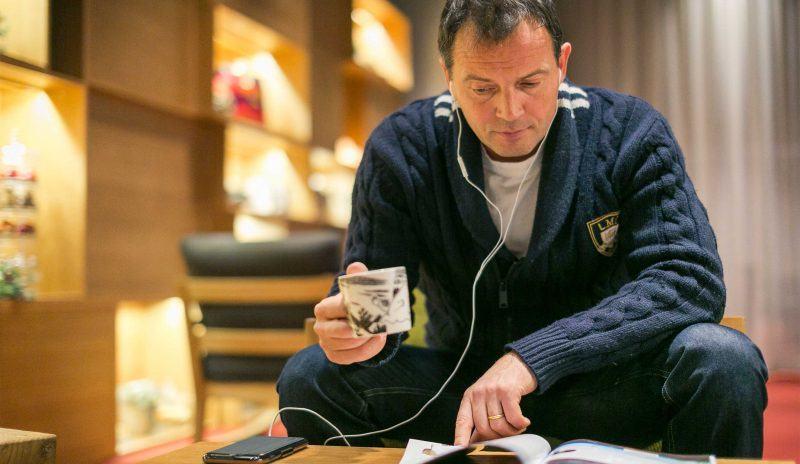
Towards and Through the Holidays with Less Stress and More Balance!
The holidays are ahead – be it Christmas, the New Year, Hanukkah, or some other holiday at the end of the year. During the lead-up period, the topic of holiday…
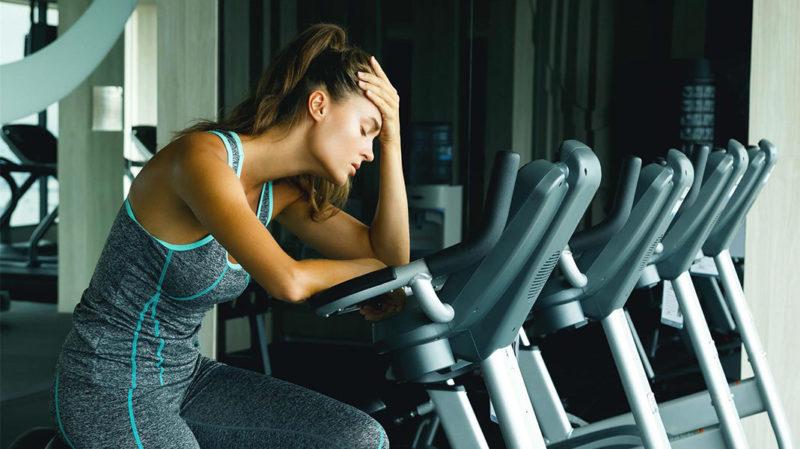
About Exercise, Alcohol and Recovery
If the goal is to improve fitness, training must be matched with good recovery. One of the factors known to have a negative effect on recovery is alcohol.


